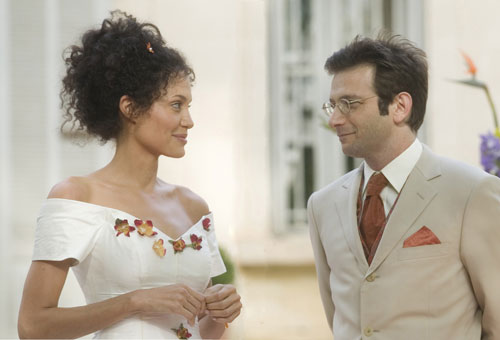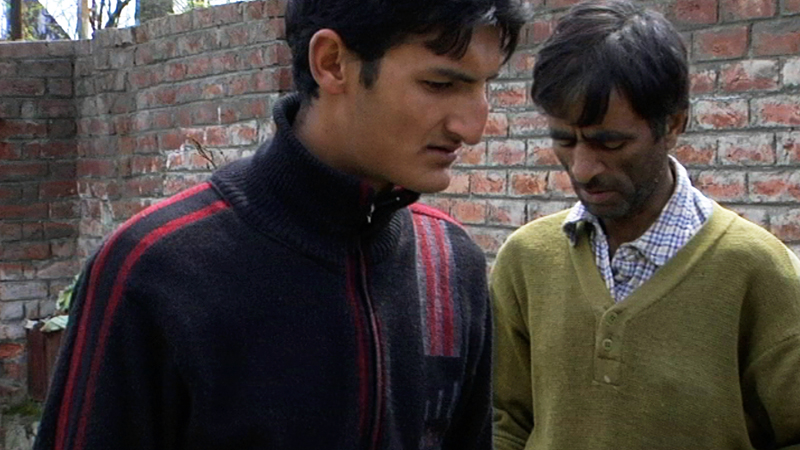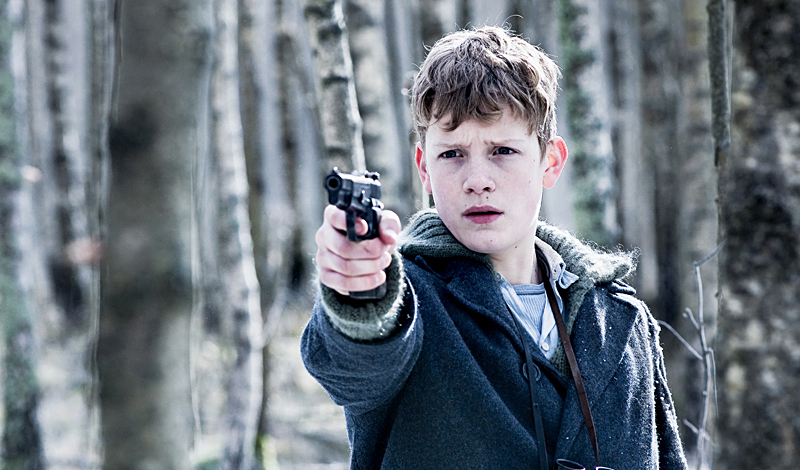Do we need another movie about the liberal West watching in horror as something that daily befalls helpless bystanders all over Africa, Asia, and the Middle East happens to one of us? We do: Wall Street Journal reporter Daniel Pearl, who was murdered by Islamic jihadists in Pakistan while researching a piece on shoe bomber Richard Reid in 2002, is one of scores of underprotected foreign correspondents killed on the job since 9/11, which makes his death a relatively neglected political issue right there. His beheading, served up on a video that quickly ran around the Internet, was an act of such unspeakable barbarism as to render almost any representation a potential invasion of privacy. But Pearl’s widow, Mariane, has written a memoir, and though I can see feeling queasy about a film that reframes Pearl’s murder as his wife’s ordeal—especially as played by Angelina Jolie, Hollywood siren and Friend of Mariane, in a corkscrew-curl wig, dusky skin, well-tutored French accent, and deeply distracting lips—Michael Winterbottom has made an enormously moving document of the tense days between Pearl’s capture and the news that he was dead.
There is an embedded thriller in A Mighty Heart, replete with obligatory pounding score and cutaways to the teeming chaos of seamy Karachi as American and Pakistani intelligence agencies try to root out Pearl’s abductors after he’s suckered into what he thinks is a crucial interview. But it’s fairly rote, acutely disadvantaged by the fact that only its protagonists don’t know the outcome, and properly upstaged by the human drama that played out in the home of Mariane’s friend Asra (a very good Archie Panjabi, of Bend It Like Beckham fame), where a very pregnant Mariane holes up with the intelligence services of the United States and Pakistan.
Closer in method and spirit to Winterbottom’s terrific asylum-seeker docudrama, In This World, than it is to his overwrought The Road to Guantánamo, A Mighty Heart is about waiting, about hanging around under the worst of circumstances with only bad news in the offing. Far from exploiting the grisly minutiae of Pearl’s death (we never see the video), the movie makes stringent demands on our patience as the search fans out through the computer files of Washington and Karachi, to the warren of hovels where terrorist cells multiply like mushrooms. Daniel, played as a loving husband and affable colleague by an impressive Dan Futterman, disappears early on, and aside from a few flashbacks to the couple’s remembered happiness, the focus is on Mariane. Winterbottom doesn’t try to build a character for Mariane, though Jolie’s no-frills, faintly cranky performance suggests that she’s no Mrs. Miniver. Faced with catastrophe, personality falls away as the mind and body go into a defensive crouch. In Mariane’s alternating frustration and determination, we see both the pathos and the strength of a can-do woman forced into idleness as she waits out the search for her husband.
A Mighty Heart is not without its opaquely sentimental moments. What is Winterbottom trying to tell us as he repeatedly cuts away to the tiny son of a Pakistani housekeeper playing on the floor of the house? Not only Westerners suffer, or something? And your eyes may roll at the protective community of handlers and searchers that forms around Mariane, and provides whatever entertainment value a movie about such appalling events can offer. With Will Patton as an addled CIA agent, The Namesake‘s Irrfan Khan as his stern Pakistani counterpart, and Denis O’Hare as the WSJ honcho who becomes a fussy mother hen to Mariane, there are moments when A Mighty Heart risks trading its modest dignity for an episode of The Mary Tyler Moore Show. But they are few in a quiet drama whose primary purpose is to place us sympathetically inside Mariane’s crisis, and only tangentially to parse the wider significance of this horrible event.
Pearl’s death was an affront to all humanity, and I was holding my breath to see whether Winterbottom would use the occasion to slag off on American foreign policy, as he did in his credulous The Road to Guantánamo by converting Guantánamo inmates from victims into heroes. Here, though, Winterbottom is completely up front about the naked anti-Semitism of Islamic jihad, and the fact that Pearl died as much because he was a Jew as because he was an American. If nothing else, this simple, decent docudrama offers a forceful counter to the repugnant argument, heard not only in the East but faintly echoed on the European far left, that whatever happens to Ugly America and its acolyte Israel, they have it coming.








